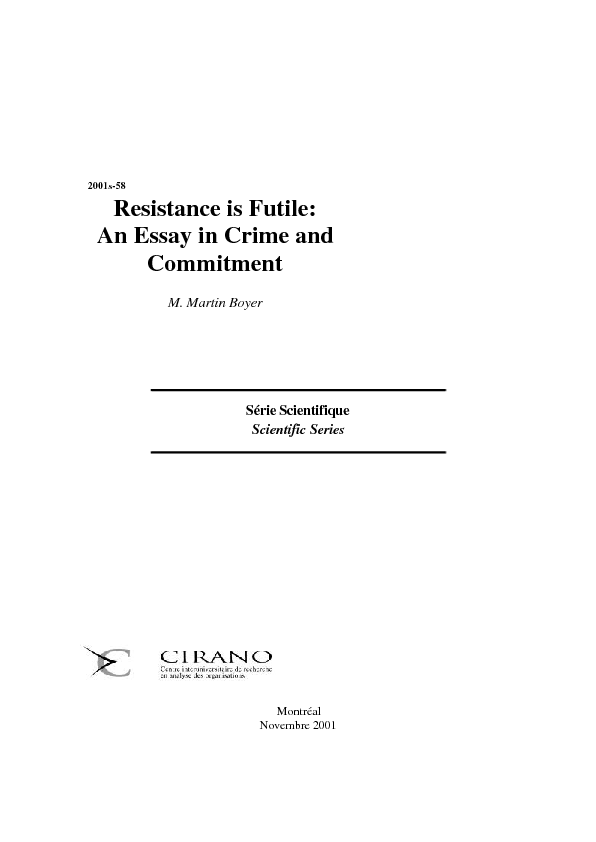Resistance is Futile: An Essay in Crime and Commitment
This paper studies a principal-agent relationship in a contractual crime setting. Suppose an agent and a principal sign a contract stipulating some transfer of funds from one player (say the agent) to the next (the principal) contingent on the state of the world announced by the first player. In an economy where there are two types of agents, the Truths (who always report the true state of the world) and the Dares (who dare misreport the true state of the world), we show that no separating contract exists. The optimal pooling contract can then be divided into two parts. For a proportion of Dares (x) smaller than some x * , the agents expected utility decreases as the proportion of Dares (x) increases. For a proportion greater than x * , the agents expected utility is independent of the exact proportion of Dares. In both cases the punishment inflicted to Dares convicted of a crime has no impact on the optimal contract. Investment in prevention is always beneficial if xx * , investment in prevention may have no impact whatsoever on crime, depending on prevention technology and the initial proportion of Dares. Finally, allowing agents to choose their type before the game starts allows us to find the long-run equilibrium proportion of Dares in the economy.
[ - ]




